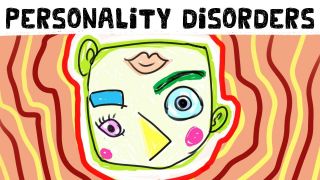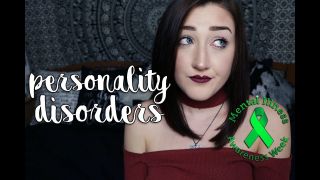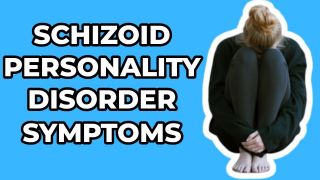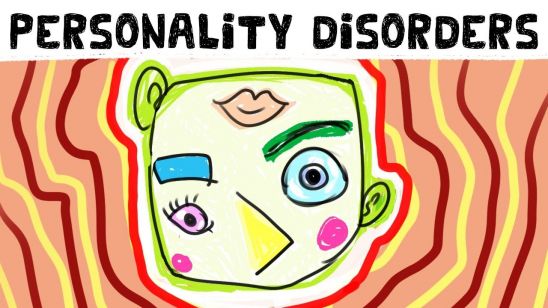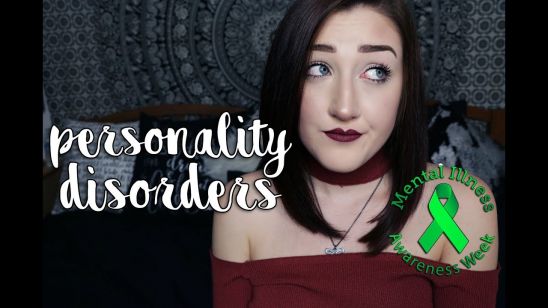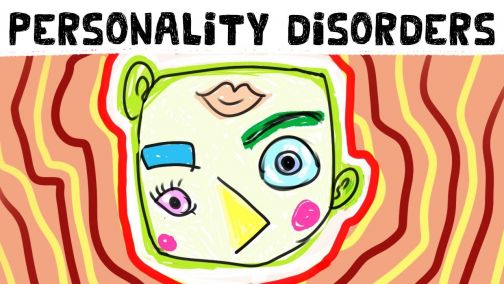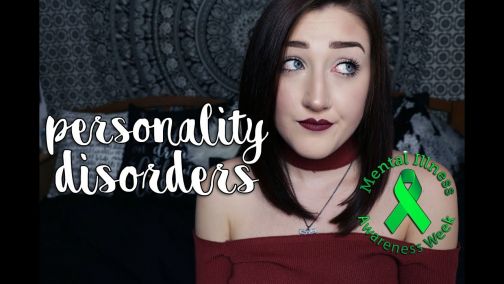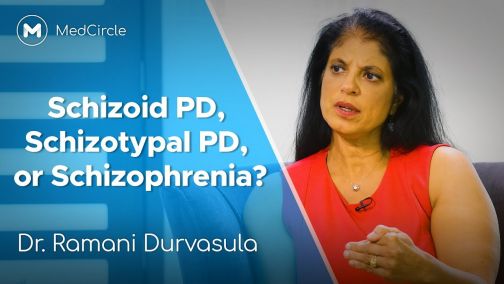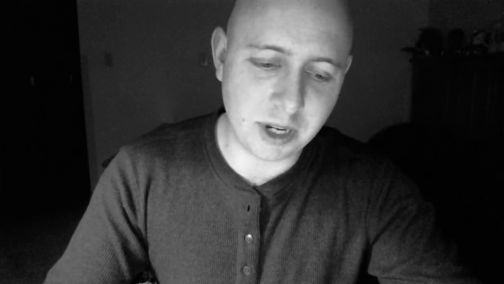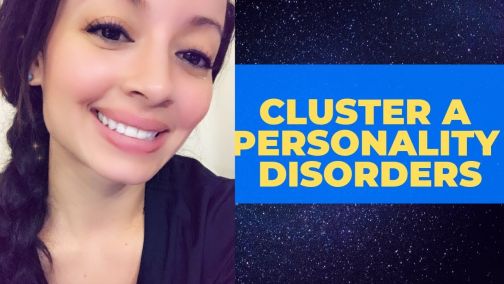Schizoid Personality Disorder
Also known as ScPD
What is it?
Personality disorders are deeply ingrained patterns of behavior that violate social norms and cause problems in interpersonal relationships. They are broken into three categories — Cluster A, B and C.
Personality disorders are previously known as axis two disorders — a group of conditions that impact a person’s function in relation to others. They are ego-syntonic, meaning a person with a personality disorder often doesn’t believe they have a problem. The disorder is consistent with their world view, perception of others and perception of themselves. They usually begin during a person's teenage years or early adulthood, and in some cases, become less obvious in middle age. It is common for people with one personality disorder to have symptoms of another.
Schizoid personality disorder, also called ScPD, is a Cluster A disorder. Cluster As are characterized by odd or eccentric ways of thinking. People with ScPD are disinterested in having close relationships with other people, and experience a limited range of emotion. They rarely date, maintain few to no intimate relationships, and often experience less joy from typically exciting enjoyable activities.
ScPD often occurs alongside other mental health conditions, including major depression and other personality disorders, especially schizotypal, paranoid, borderline and avoidant. It’s considered an uncommon condition, and is more common in men than women.
What are the symptoms?
People with ScPD are typically considered loners. In social settings, they may come off as aloof, unenthusiastic, socially inept or even rude. They prefer to engage in solo activities, such as computer games or puzzles. People with ScPD do not find their behaviors or preferences abnormal. They can often hold steady jobs, and may even find typically “boring” jobs ideal.
Additional symptoms include:
- Experiencing no desire for close relationships
- Seeming aloof or detached
- Avoiding social events
- Preferring social activities over ones that require interaction
- Having little to no interest in sexual experiences with other people
- Being indifferent to praise or criticism
- Expressing emotional detachment
- Lacking close relationships other than with family members
- Exhibiting few noticeable changes in mood
- Not becoming angry or upset, even when provoked
What are some common warning signs?
ScPD is characterized by anti-social tendencies and limited range in emotion. Because of this, a loved one with ScPD will often display noticeable symptoms at home, at work or in social settings. If you think a loved one may have ScPD, ask yourself the following questions:
- Do they seem indifferent to the opinions of others?
- Do they seem uninterested in making new friends or getting along with new people?
- Do they turn down invitations to socialize?
- Do they stay calm even when wronged or insulted?
- Do they seem indifferent to enjoyable sensory experiences, such as laying in the grass or walking on the beach?
- Are the vast majority of their hobbies performed solo?
- Do they prefer daydreaming or hanging out with animals, over spending time with other people?
- Do they self-isolate without seeming upset about their lack of socialization?
None of these behaviors confirm a ScPD diagnosis, but they do hint at one. If you feel comfortable doing so, talk to your loved one about their behavior and why you’re concerned. Keep in mind that symptoms aren’t always obvious. People battling chronic mental health conditions often learn to hide their pain from others.
What causes ScPD?
The exact causes of ScPD are unknown. Doctors believe a range of factors play a role in its development, including being genetically predisposed (i.e. other family members struggle with ScPD, schizotypal personality disorder or schizophrenia) or being raised by a cold, absent or unemotional parent.
How is it treated?
The primary treatment method for all personality disorders, ScPD included, is psychotherapy (aka talk therapy). Medications are not commonly used to treat personality disorders. However, they may be recommended to address severe cases or symptoms that stem from co-occurring conditions, such as anxiety and depression. In those cases, common medications may include anti-depressants such as SSRIs or SNRIs, anti-anxiety medications (aka Benzodiazepines), and antipsychotics.
Treatment for ScPD can be successful, however, people often refuse to seek help because they don’t see their behavior as problematic.
It’s important to remember that treatment plans are personalized. If you’re seeking help, make sure you work one-on-one with a doctor to create a plan that fits your needs. Just because a medication or therapy helps someone else recover, doesn’t mean it’ll be the right solution for you. Don’t ever feel guilty about asking for help, taking meds or going to therapy. Addressing your mental health is a productive and courageous thing to do.
How can I help a loved one with ScPD?
Caring for someone with ScPD isn’t always easy. You may feel undervalued or like you don’t play an important role in their life. It’s important to remember that their feelings and behaviors are not a reflection of your self-worth.
It can also be hard to know how to support them. Do they want to talk about their behavior? Will they push you away if you try to help? There are no easy answers to these questions. Every person handles their mental health differently. That said, we all want to feel loved and supported. Showing someone that you’re invested in their wellbeing can make a difference.
Here are some ways to do so:
- Educate yourself: Read up on symptoms, treatment options, and healthy living recommendations. Try and understand what your loved one is going through so you are better equipped to talk to them about it. This will also make you a valuable resource when it comes time to find treatment.
- Advocate treatment: Asking for help can be hard. Societal stigma often keeps people from opening up to others about their symptoms. Support your loved one by helping them research different treatment methods, or doctors in their area. If they’d like, go to a few sessions with them. Remind them that there’s nothing weird about getting help, and that you’re proud of them for following through. Remember that people with ScPD are often reluctant to seek help.
- Be patient: Don’t take it personally if they lash out at you, don’t answer text messages or socialize less. They are battling something that’s very hard to overcome. Their distance has nothing to do with who you are as a person. Keep showing up for them even when it feels like it’s not helping. The act alone lets them know that they have people in their life who care.
What other resources are out there?
Want to learn more, find a doctor, join a support group or speak to a counselor? The below resources might be able to help:
- New England Personality Disorder Center
- Emotions Matter
- Crisis Text Line
- BetterHelp
- Psychology Today Directory
- American Psychiatric Association
- Medicaid Eligibility Information
- Open Path Collective
- Resources for POC, LGBTQ+ and disabled individuals
- Anxiety and Depression Association of America
- National Network of Depression Centers
- Medicine Assistance Tool
- NeedyMeds
- Erika's Lighthouse
- Anxiety Network
- Anxiety Central Forums
- National Social Anxiety Disorder Center
- International Society for the Study of Trauma & Dissociation
Support our work
We’re on a mission to change how the world perceives mental health.

